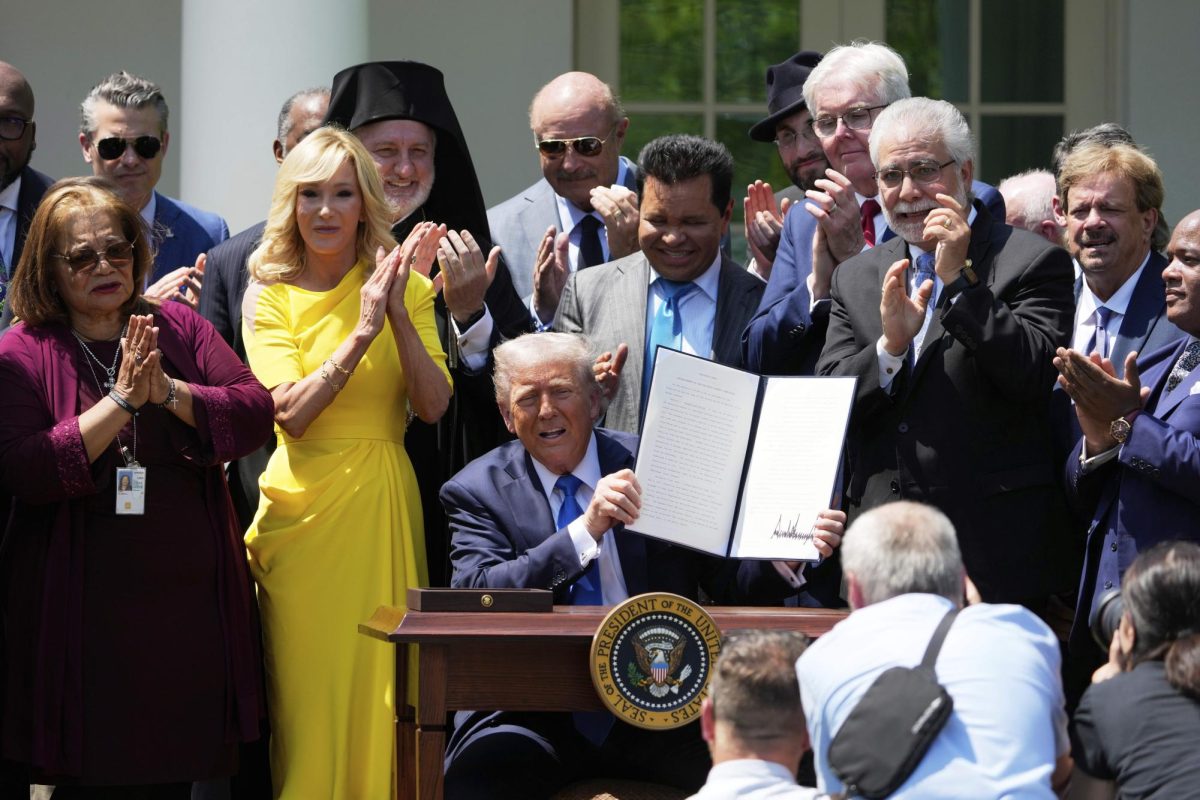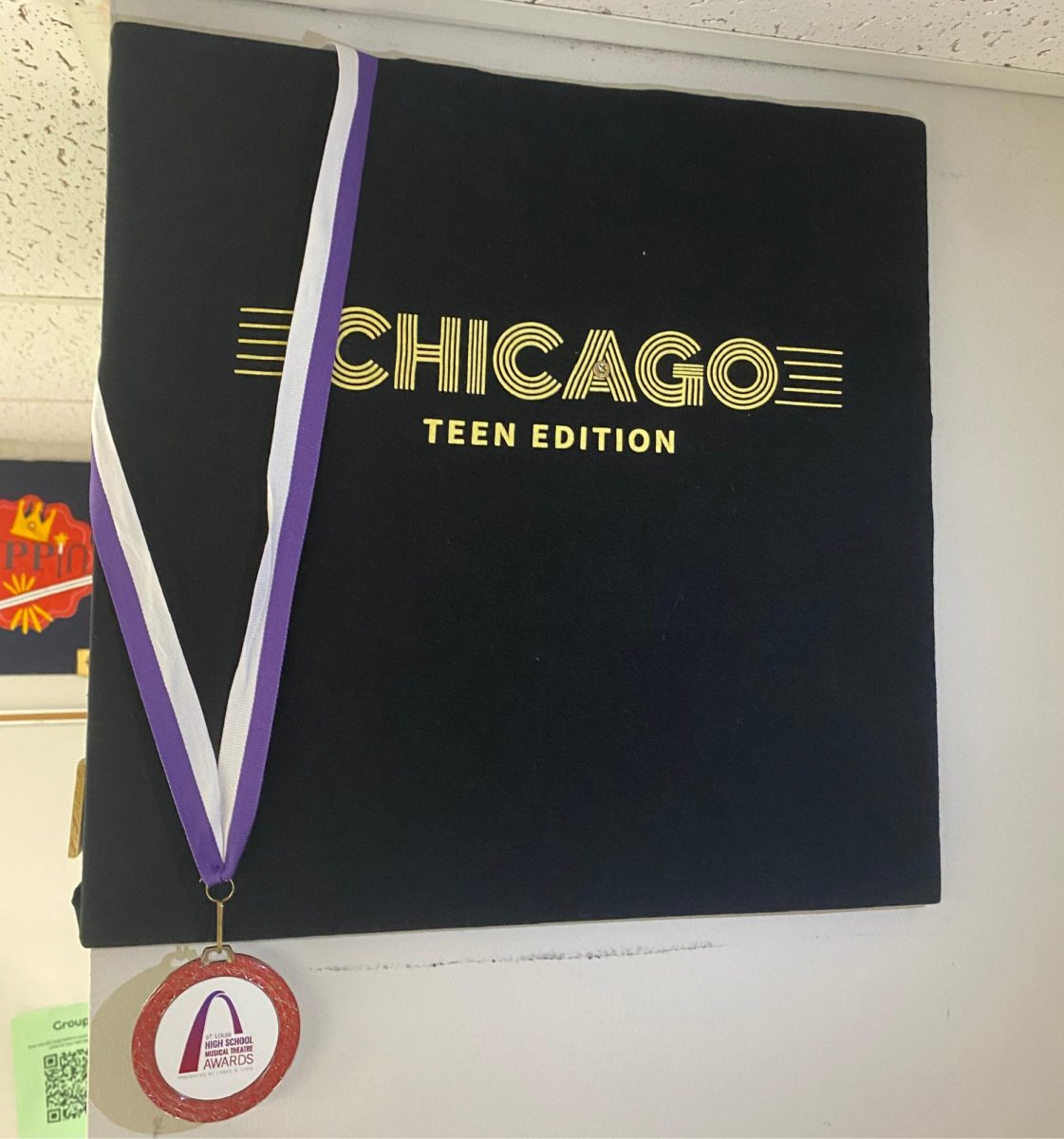EHS Hosts First Listening Circle
December 9, 2019
Senior Scottlyn Ballard walked into the large staff conference room to attend the Nov. 26 Listening Circle with a tingling nervousness, not seeing as many faces as she expected.
But she left “enlightened.”
“As far as first steps go, this was a great one,” Ballard said.
In response to the racial tension of a few weeks ago, District 7 hired EHS alum Dr. Kira Banks to conduct Listening Circles at the school. Dr. Banks is a professor at St. Louis University and an equity consultant who has worked on the Ferguson Commission.
“Listening Circles were developed to allow the community an opportunity to work to making our school community a better place by addressing racial dynamics…,” EHS Principal Dr. Cramsey wrote in an email. “I believe it is so important to give our students a voice and an experience in civic engagement.”
Dr. Banks led the discussion, which lasted from second hour through third hour, in open-ended questions about race relations at EHS and solutions the students would suggest, including proposals like a school-wide assembly addressing racism and the creation of an African-American Studies class. About 20 students in total attended; they trickled in and out periodically.
That the Listening Circle’s moderator was a black EHS graduate, Ballard said, was imperative.
“Personally, I think it would be hard to relate to someone who comes to the school having no experience or knowledge with that school,” Ballard said. “Having someone that grew up in Edwardsville and attended the high school sort of fostered that immediate compatibility.”
Administrators did not attend the Listening Circle.
“As an administrator, I did not want the participants’ responses to be swayed by my presence,” Dr. Cramsey wrote.
However, junior and President of Black Student Union Olivia Gray, who said that she attended the Listening Circle in order to set a good example in activism for her fellow BSU members and to affect change, wished an administrator would have attended.
“They could listen to what we were saying instead of it being conveyed to them on paper,” Gray said. “I feel like it would help them understand the feelings and importance of it.”
But absence of authority figures, Ballard said, was beneficial in that it allowed students to express their thoughts authentically.
“When you’re talking to someone in an apparent position of power, especially over you, it’s a lot different with what you say,” Ballard said. “If one of the administrators were there monitoring the conversation, I don’t think that we’d get to nearly as many topics as we were talking about.”
Ballard also noted the limited number of white students—only four attended the Listening Circle.
“It was really nice to see that it wasn’t just black students who came to the listening circle; it was others as well. But I also feel a little saddened that not more came,” Ballard said. “I get that this is an uncomfortable subject for anyone to talk about…but there has to be some societal change in order to see equality.”
Senior Kharma Berkman, who is white, decided to attend the Listening Circle because she felt dismayed by EHS’s response to the racial tension.
“…It sort of became a joke,” Berkman said. “I felt like the school was in danger. I didn’t feel that my race mattered, because we were all (at the Listening Circle) to try to make a difference.”
And Ballard is confident that that change will happen, even though she might not be able to see it in her last months at EHS.
“Essentially, we are sowing the seeds of something bigger than ourselves,” Ballard said. “And if these conversations, if these discussions, if these Listening Circles provide a foundation for that change, then arguably, none of the events are futile—they are the most essential, because they started something.”
Dr. Cramsey explained that data from the Listening Circles, along with input from a developing Equity Task Force, will help the district create a plan to ease racial tension moving forward. There will be more Listening Circles in the future.
“We will continue to promote respect as a high priority at EHS,” Cramsey wrote, “by continuing many of the culture-building activities that have occurred for all of my years as principal as well as continue to look for ways to teach, model, facilitate and praise respect.”











